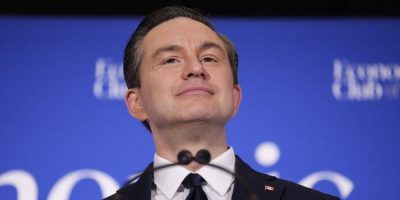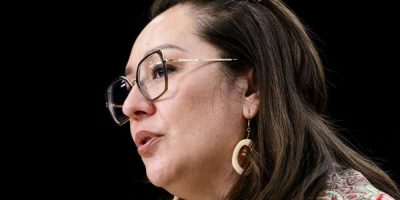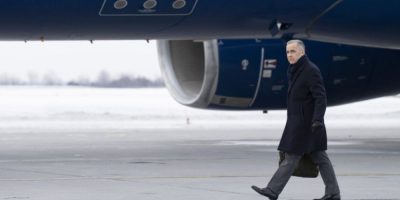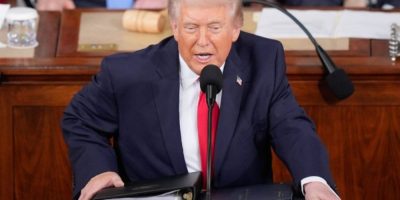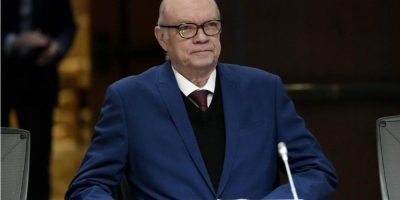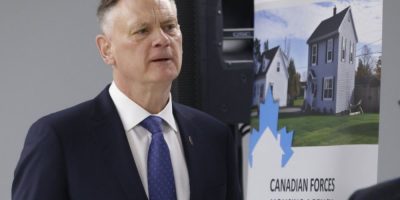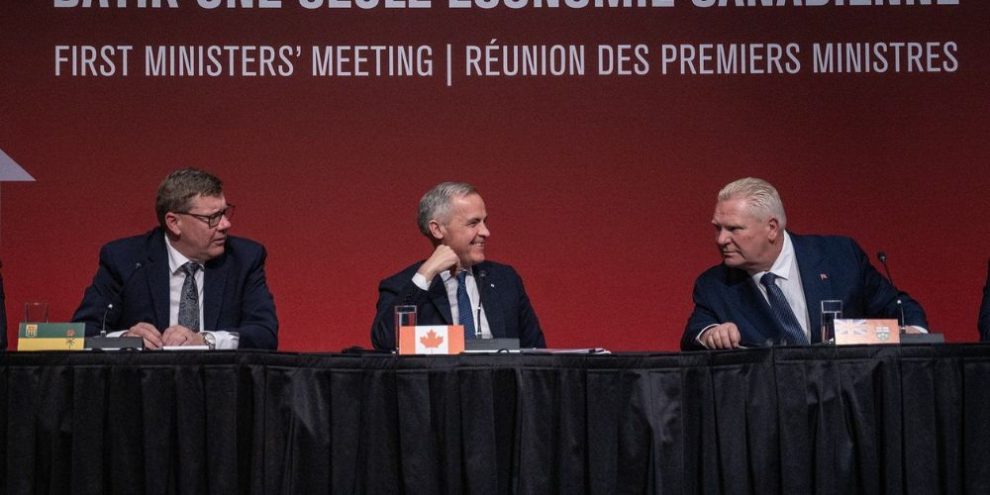
Updated July 20, 2025 @ 6:15pm
Tariffs and trade are top of the agenda as the country's premiers arrive in Ontario's cottage country for a three-day meeting that comes at a pivotal time for both Canada-U.S. and domestic relations.
The premiers' summer gathering in Muskoka will also feature a Tuesday meeting with Prime Minister Mark Carney, as trade talks with the United States are expected to intensify.
Most of what the premiers are likely to discuss stems from U.S. President Donald Trump's tariffs: trade negotiations, the direct impact on industries such as steel and aluminum, the increased pushes to remove interprovincial trade barriers and speed up major infrastructure and natural resource projects to counteract the effects of tariffs, as well as Indigenous communities' concerns about them.
Barrie's News Delivered To Your Inbox
By submitting this form, you are consenting to receive marketing emails from: Central Ontario Broadcasting, 431 Huronia Rd, Barrie, Ontario, CA, https://www.cobroadcasting.com. You can revoke your consent to receive emails at any time by using the SafeUnsubscribe® link, found at the bottom of every email. Emails are serviced by Constant Contact
Day 1 of the premiers' meeting Monday involves discussions with Indigenous leaders including the Assembly of First Nations, the Métis National Council and the Native Women's Association of Canada.
Carney himself is fresh off a meeting with hundreds of First Nations chiefs, many of whom have expressed concerns about their rights being sidelined as the prime minister looks to accelerate projects in the "national interest."
Some of the top priorities premiers are pushing include pipelines and mining in Ontario's Ring of Fire region, and chiefs have said that must not happen by governments skirting their duty to consult.
Ontario Premier Doug Ford, who has served for the past year as head of the Council of the Federation, is host of the meeting and said in a statement that protecting national interests will be top of mind.
“This meeting will be an opportunity to work together on how to respond to President Trump’s latest threat and how we can unleash the full potential of Canada’s economy," Ford wrote.
Trump and Carney agreed in June at the G7 summit to try to reach a trade deal by July 21 but Trump recently moved that deadline to Aug. 1, while telling Carney he intends to impose 35 per cent across-the-board tariffs on Canada that same day.
In a television interview broadcast Sunday on "Face the Nation," U.S. Commerce Secretary Howard Lutnick said about 75 per cent of all goods from Canada and Mexico enter the United States tariff-free under a trade deal with its two neighbours.
But Lutnick made it clear the White House wants more from Canada.
"Canada is not open to us," he said. "They need to open their market. Unless they're willing to open their market, they're going to pay a tariff."
Lutnick also said Trump intends to renegotiate the Canada-U.S.-Mexico agreement next year, when the pact is slated to undergo a joint review.
"He wants to protect American jobs," Lutnick said. "He doesn't want cars built in Canada or Mexico when they could be built in Michigan and Ohio. It's just better for American workers."
Carney has said Canada is trying to get an agreement on softwood lumber exports included in the current round of negotiations with the United States.
British Columbia Premier David Eby said he intends to raise the issue and others of particular importance to B.C. at the meeting.
"(We want to) get access to the same level of attention, for example, on the softwood lumber as Ontario gets on the auto parts sector, (and) that we get the same amount of attention on capital projects as Alberta is currently getting in relation to their proposals," Eby said last week in Victoria.
Alberta Premier Danielle Smith has been making a big push for new pipelines, but said during a press conference Friday that her focus would also be on premiers working together to address the tariff threat, including interprovincial trade.
"I was really pleased to sign (a memorandum of understanding) with Doug Ford during the time he was here in during Stampede, and other provinces are working on those same kind of collaborative agreements," she said.
"We need to do more to trade with each other, and I hope that that's the spirit of the discussion."
Smith and Ford signed an MOU earlier this month to study new pipelines and rail lines between provinces, and both premiers also talked about wanting Carney to repeal a number of energy regulations like net-zero targets, the West Coast tanker ban and a proposed emissions cap.
Ford has also taken a lead role on increasing interprovincial trade, signing MOUs with several provinces and enacting a law to remove all of Ontario's exceptions to free trade between the provinces and territories.
Nova Scotia's Tim Houston is another premier banging the drum of interprovincial trade, saying the trade war is forcing action on it.
"We’re seeing the benefit of working together to respond to economic threats from the U.S. by breaking down internal trade barriers and opportunities to expand in other international markets," he wrote in a statement.
Ford has said the premiers will also talk about emergency management, energy security, sovereignty and national security, health, and public safety. The premiers have also been pushing the federal government to reform bail laws and Carney said last week that legislation will be introduced in the fall and he expects to discuss the issue with the premiers on Tuesday.
The premiers' summer meeting also signals a changing of the guard, with the role of chair of Council of the Federation moving between provinces annually.
But after Ford is no longer chair, he's not expected to take too much of a back seat on all of the aforementioned issues.
He is still premier of the most populous province, has built a strong relationship with Carney, often singing the prime minister's praises, and has done frequent American TV interviews making the case for increased trade over tariffs.
Those network appearances, in part, earned him a nickname of "Captain Canada" — a persona he used to massive political benefit. Ford made the fight against tariffs and Trump the central part of his re-election campaign and voters returned him to government with a third consecutive majority.
— With files from Wolfgang Depner in Victoria, Keith Doucette in Halifax, Lisa Johnson in Edmonton and Jim Bronskill in Ottawa
This report by The Canadian Press was first published July 20, 2025.
"We need to do more to trade with each other, and I hope that that's the spirit of the discussion."
Smith and Ford signed an MOU earlier this month to study new pipelines and rail lines between provinces, and both premiers also talked about wanting Carney to repeal a number of energy regulations like net-zero targets, the West Coast tanker ban and a proposed emissions cap.
Ford has also taken a lead role on increasing interprovincial trade, signing MOUs with several provinces and enacting a law to remove all of Ontario's exceptions to free trade between the provinces and territories.
Nova Scotia's Tim Houston is another premier banging the drum of interprovincial trade, saying the trade war is forcing action on it.
"We’re seeing the benefit of working together to respond to economic threats from the U.S. by breaking down internal trade barriers and opportunities to expand in other international markets," he wrote in a statement.
Ford has said the premiers will also talk about emergency management, energy security, sovereignty and national security, health, and public safety. The premiers have also been pushing the federal government to reform bail laws and Carney said last week that legislation will be introduced in the fall and he expects to discuss the issue with the premiers on Tuesday.
The premiers' summer meeting also signals a changing of the guard, with the role of chair of Council of the Federation moving between provinces annually.
But after Ford is no longer chair, he's not expected to take too much of a back seat on all of the aforementioned issues.
He is still premier of the most populous province, has built a strong relationship with Carney, often singing the prime minister's praises, and has done frequent American TV interviews making the case for increased trade over tariffs.
Those network appearances, in part, earned him a nickname of "Captain Canada" — a persona he used to massive political benefit. Ford made the fight against tariffs and Trump the central part of his re-election campaign and voters returned him to government with a third consecutive majority.
— With files from Wolfgang Depner in Victoria, Keith Doucette in Halifax and Lisa Johnson in Edmonton
This report by The Canadian Press was first published July 20, 2025.
